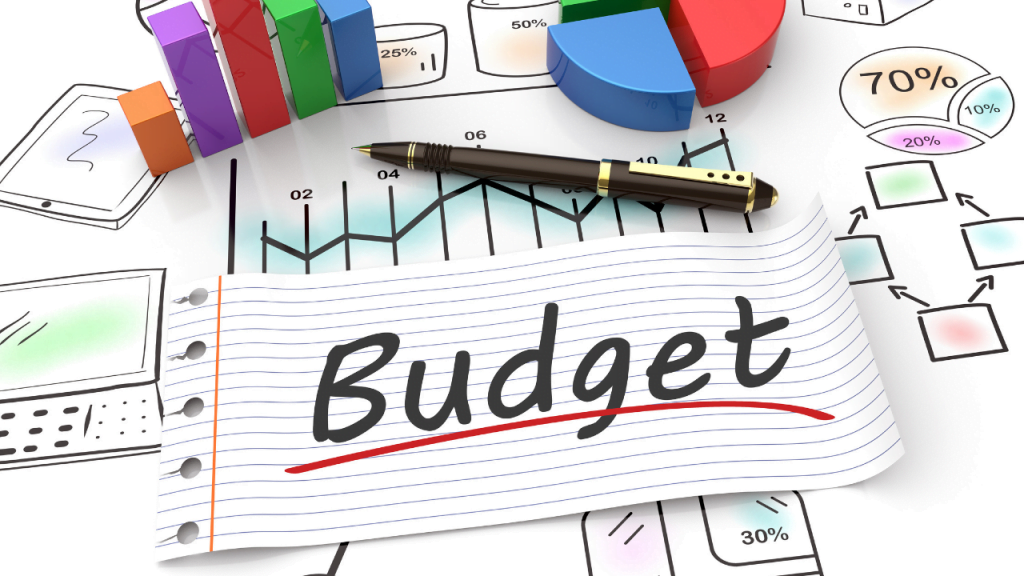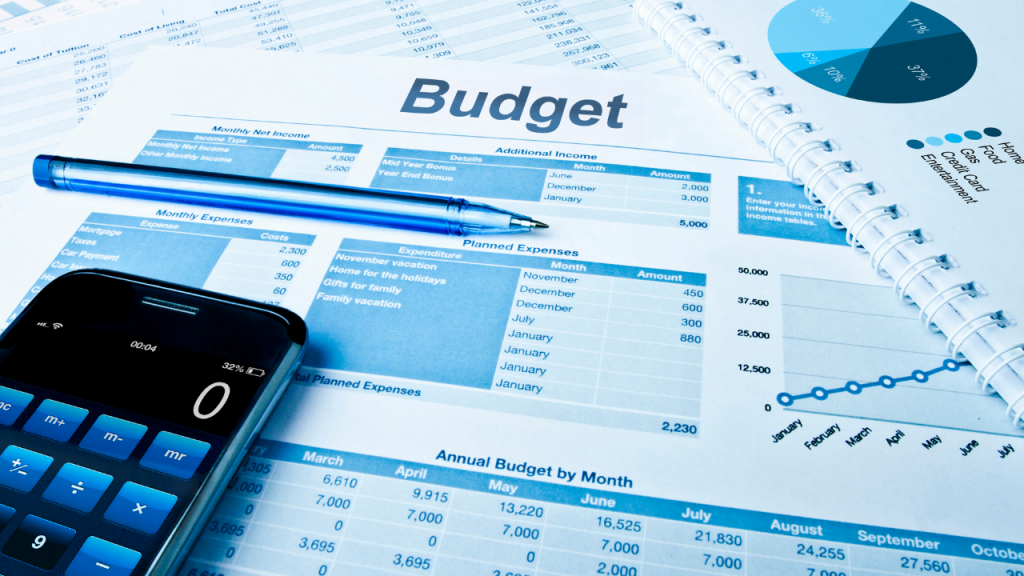Budgeting is an important skill for anyone who wants to manage their finances. It’s also a complex topic that can be difficult to master. But by taking the time to understand the various aspects of budgeting and developing your strategy, you’ll be well on your way to being successful as a consumer and business owner.
Table of Contents
ToggleBudget Management Skills.
In today’s fast-paced and uncertain world, having a solid understanding of how to manage your finances is more important than ever. Whether you’re trying to save money, pay off debt, or achieve a financial goal, budget management skills are essential. Budgeting is not only about cutting back on expenses or saving money. It’s also about making the most of your income and creating a plan to achieve your financial goals.
In this article, we will be discussing the importance of budget management skills and providing tips and strategies for mastering the art of budgeting. From setting financial goals to creating a budget plan, we will cover everything you need to know to take control of your finances and reach your financial objectives. So, whether you’re just starting to think about budgeting or are looking to improve your existing budgeting skills, this article is for you. Let’s dive in!

Establishing and Tracking a Budget
Establishing a budget is the first step to becoming financially responsible. A budget helps you stay on top of your finances by helping you plan for the future and determine what’s affordable.
A spending plan is different from a budget because it focuses more on daily spending, such as how much money you need for groceries or rent. A good way to think about both is that they’re ways of tracking where your money goes each month based on preset rules that help keep things in line with what’s best for everyone involved (you).
The most important thing when setting up any kind of household spending system is having an understanding of what keeps trackable costs like groceries and utilities separate from discretionary items such as entertainment or dining out—and then making sure they all get accounted for every month so there aren’t any surprises later down the road! This can be tricky at first because some people have difficulty separating their wants versus needs; others may find themselves tempted by purchases they didn’t anticipate needing but feel obligated by peer pressure or social norms…
Budgeting
Budgeting is the process of determining how much money you can spend and on what, and then following through with this plan. Budgeting helps you make better financial decisions by keeping you aware of your spending habits and helping to establish priorities.
You can do budgeting in many different ways:
Create a monthly plan that shows how much money will be spent each month. This can include things like
- Groceries or clothes (or both),
- Entertainment expenses like movies/tv shows/concerts/sports tickets
- Transport costs like gas & public transportation rides
- Personal care items like toothpaste/toilet paper/shampoo/soap

Financial management
Financial management is the process of managing your finances and planning for future needs. A budget is a plan that you create, monitor, and adjust as needed to meet your goals.
- Planning: You need to be able to plan financially to make informed decisions about how much money you need each month or year. This includes knowing what bills are coming up and when they will be due so that there’s no confusion about whether or not something has been paid off yet—or if it should have been paid off earlier than expected because there was an error in calculating interest rates (for example).
- Monitoring spending habits: Your monthly expenses should reflect how much money is coming into your bank account every month; otherwise, if something happens unexpectedly (such as having an unexpected expense), this could lead directly to bankruptcy down the road!
Negotiation
Negotiation skills are important for budget management. You can negotiate with your employer for a higher salary, with your landlord for a lower rent, and with the credit card company for a lower interest rate. Negotiate with your insurance company about coverage that is more favorable to you and less expensive than what they’re offering at this time (and maybe even ask them if they will pay upfront).
You can negotiate with your credit card company for a lower interest rate, with your landlord for a lower rent, and with your employer about more favorable payment terms for your monthly paychecks.

Communication
Communication is the key to successful budgeting. This can be hard to do when you’re trying to stick to a budget and save money, but you must communicate with everyone involved in your life.
- Communication with your partner:
There will be times when one person in the relationship has more resources than another person. Ensure that he or she is aware of what is going on. This will help them not to feel like they are being taken advantage of by someone else who has more money than them. It’s also important for both partners not only to have access to each other’s credit cards but also to know how much money each spends on groceries every month because this helps keep track of spending habits and prevents unnecessary overspending if there are any surprises later down the road after all bills have been paid off (which happens often).
Creative problem-solving
Creative problem-solving is a skill that helps you to identify and solve problems originally. The first step in creative problem-solving is to identify the problem. This can be done by asking yourself questions such as:
- What’s wrong?
- Why am I having this issue?
- How can I improve my situation or life so that it’s more enjoyable and efficient?

Decision-making
You need to be able to make decisions that are based on facts, values, and goals. You also need to be able to decide if the consequences of your actions are worth it or not.
- Make sure you have all the information before deciding on something important, such as buying a house or starting a business.
- Think about what would happen if you failed at something that had value for yourself or someone else (e.g., losing weight). Would it be worth it? What would happen if everyone knew how much effort went into changing their lifestyle?
Monitor Spending Habits
As a budgeter, it’s important to know your spending habits. If you find yourself getting into the habit of buying things that aren’t necessary or can be bought in bulk, it might be time to start looking for ways to cut back on those purchases. You could also check your bank statements and track all of your spending over the past few months. This will help you see any patterns in how much money is spent on different things, which may lead you down an interesting path toward cutting back on certain expenses altogether!
Once this has been done and analyzed, it’s time to save! For example, if I’m eating out more than usual because I am stressed out about work (and who isn’t?), then I should spend less money going out so that there’s more left over at the end of each month so we’ll have something left over when times get tough again next year (or whenever).
Financial Goals
A financial goal is a specific target to achieve over some time. It’s important to set financial goals as part of your overall plan because it helps you stay on track and focus on where you want to be financially.
Setting financial goals can be challenging but it’s also an important part of becoming successful in business or managing money better at home. When setting financial goals, several things need to be considered:
- What do I want my future self (or current situation) to look like?
- How much money do I need to not only survive but thrive financially?
The benefits of setting financial goals include having clarity about what matters most when it comes down to choosing how much money we spend each month; knowing why we’re spending our hard-earned cash every cash flow cycle; making sure that whatever decisions we make about spending dependably reflect our values instead of just blindly following trends without thinking too deeply about consequences.*
Your Spending
Your spending habits, income, and financial goals are the most important factors to consider when making a budget. If you don’t know where your money is going, then it’s not possible to make a realistic budget.
To start, find out how much money you spend on certain things every month. For example, if you’re buying groceries and eating out every day (a common situation), record what those expenses are at the end of each month so that they can be added up into an accurate total at tax time.
Next step: Get organized by creating an envelope for each category of spending—for example, clothing or household items like toilet paper and paper towels—and placing each type within its envelope so there won’t be any confusion about where things belong later on!
Create a Contingency Fund
A contingency fund is a pool of money that can be used to cover expenses in the event of an unexpected expense. For example, if you need to replace your car’s tires after they’ve been destroyed by hail damage, this may exceed your insurance deductible. This is because it will cost more than what your car is worth at auction.
You might say “Oh well—I’ll just pay for them myself!” but there are other costs involved with replacing tires: time spent waiting at the tire store (and possibly getting stuck there), gas money, etc. Your contingency fund helps prevent these kinds of expenses from happening so that they don’t eat into your cash flow too much and force you into debt or bankruptcy later on down the road.
Take Advantage of Free Financial Resources
There are a variety of free resources that you can take advantage of when it comes to budgeting.
- Use an app like Mint or YNAB, which allow you to set goals and track your spending in real time. These apps will tell you what you’re spending money on and where allowing you to make better decisions about whether or not those purchases are worth the cost.
- Use a financial adviser or planner who has experience working with people who struggle with managing their finances effectively (like me). A good adviser will ask questions about how much money is coming in each month, what expenses need to be covered by this paycheck/monthly income stream and how much time is left before they have another source such as social security come into play again.
Set Realistic Financial Goals
When it comes to budget management skills, setting realistic financial goals is an essential step. Without clear and achievable goals, it can be difficult to make progress and stay motivated when managing your finances. Here are a few reasons why setting realistic financial goals is so important:
- Provides direction: Having specific financial goals in mind gives you a sense of direction and purpose when budgeting. It helps you focus on what’s important and prioritize your spending.
- Increases motivation: Setting realistic financial goals can increase your motivation and drive to achieve them. When you can see the progress you’re making towards a particular purpose, it can be an incredible source of motivation to keep going.
- Helps with decision-making: Having financial goals in mind can also help you make better decisions about your money. For example, if your goal is to save for a down payment on a house, you’ll be more likely to resist the urge to make unnecessary purchases. This will delay your goal.
- Improves accountability: Setting financial goals makes you accountable for your finances. When you have a clear plan and objectives, it’s easier to track your progress and make adjustments as needed.
When setting your financial goals, it’s important to keep them realistic. Setting unrealistic goals can be demotivating and lead to frustration. It’s better to set smaller, achievable goals that you can accomplish and build on. For example, if you want to save $10,000 in a year, it may be better to start with a goal of saving $833 a month. This is because it is easier to save the whole amount at once.
Additionally, it’s important to make sure that your financial goals are SMART ( Specific, Measurable, Achievable, Relevant, and Time-bound). This will help you to have a clear understanding of what you want to achieve, how you will achieve it, and when you want to achieve it.
Prioritize Essential vs Non-Essential Costs
One of the key strategies is to prioritize essential vs non-essential costs. This means identifying the expenses that are necessary for your survival and well-being, and those that are not as necessary or can be cut back on.
For example, food is an essential cost. You can’t eat without it! However, if you don’t have a car and need to drive everywhere, then this may not be an essential cost for your budgeting purposes.
So how do you prioritize these two types of costs? The best way is by looking at the overall picture: what are all the different types of things that make up your expenses every month? Then look at them individually and ask yourself what each one will require from your wallet in order to actually pay for itself over time (or even just survive). Here are a few tips on how to prioritize essential vs non-essential costs:
- Identify your fixed costs: Fixed costs are expenses that you have to pay every month, such as rent or mortgage, car payments, and insurance. These expenses are considered essential and should be prioritized in your budget.
- Identify your variable costs: Variable costs are expenses that vary from month to month, such as groceries, entertainment, and clothing. These expenses are considered non-essential and can be adjusted depending on your financial situation.
- Prioritize your essential expenses: Make sure that your essential expenses are paid first. This includes your fixed costs, as well as any other expenses that are necessary for survival, such as healthcare and transportation.
- Cut back on non-essential expenses: Once your essential expenses are taken care of, you can start to look at ways to cut back on your non-essential expenses. This may involve finding cheaper alternatives, such as cutting back on cable or eating out less.
Create an Emergency Fund
An emergency fund is a savings account that you can turn to in case of an unexpected expense. It’s often called “a rainy day fund,” and it allows you to avoid having to liquidate investments or draw money from your checking account just because life throws one more curve ball at you.
An emergency fund should be set up with enough cash on hand so that if something were to happen, like losing your job, being injured in an accident, or suffering some other significant loss (like divorce), then it’ll be there for you until the end of the month when things settle down again.
Conclusion
A budget can be a powerful tool to help you get out of debt and save money. It is important to set realistic goals and plans so that you won’t be discouraged when they don’t work out as planned. If you follow these steps, then hopefully we have given you some tips on how to create a budget and stick with it!
Is budgeting a skill? money management skills assessment, financial management skills of principal financial.











